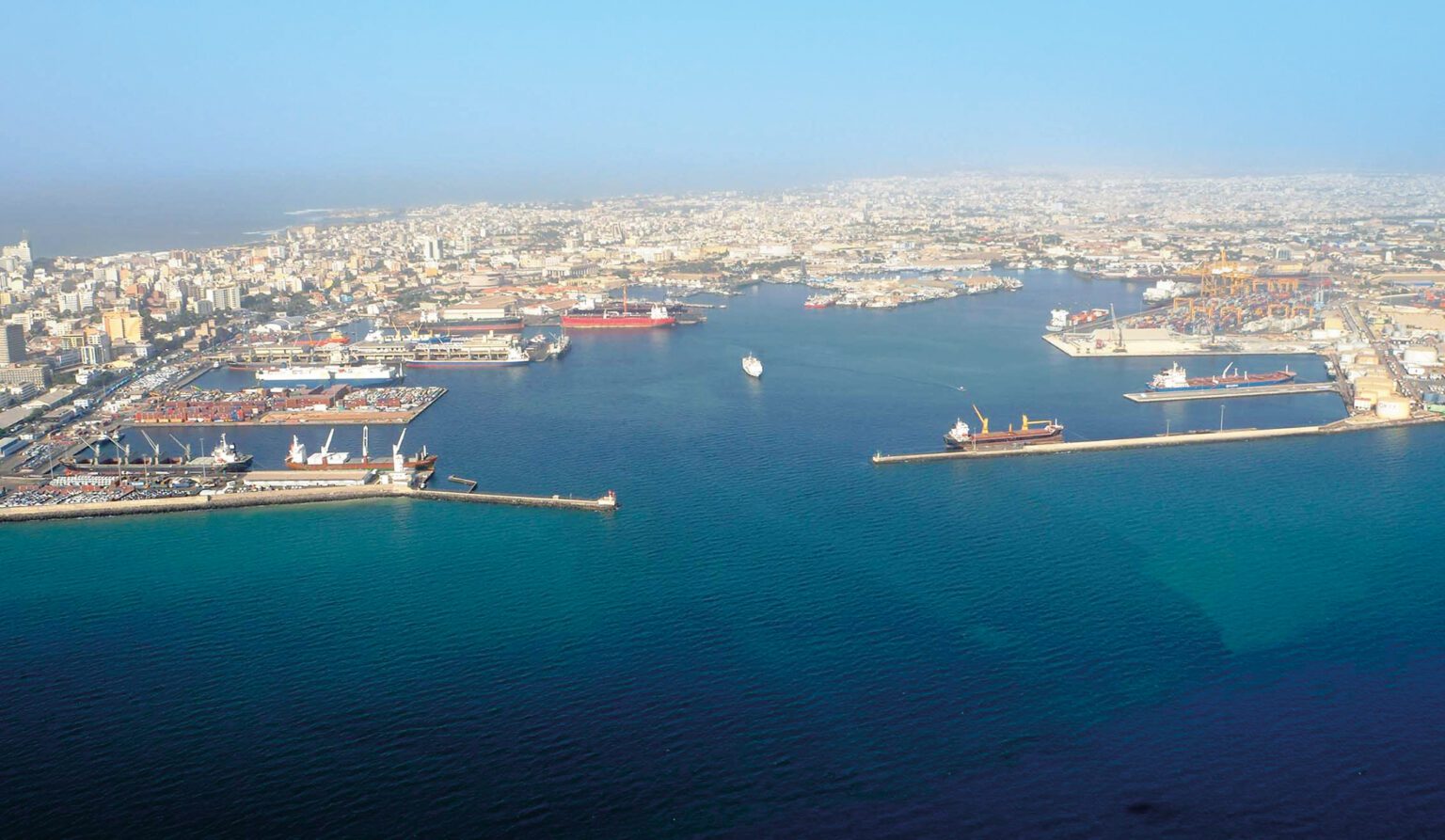Global Courant 2023-04-21 05:00:00
In the center of Dakar, huge ships sail across the capital’s rocky peninsula to dock at the West African country’s main port. Long queues of trucks stretch from the Port Autonome de Dakar as logistics companies move containers from the port to processing hubs, where the goods are transported further to their final destination in Senegal or further afield. The port was originally built by the French in 1862, when Dakar was little more than a trading post used by European merchants with a military garrison to protect their trading interests. In 1960, the port was expanded and transformed into the Port Autonome de Dakar under one of Senegal’s very first development agendas as an independent country.
The port is still an important cog in Senegal’s logistics sector – handling some 22 million tonnes of cargo in 2021 – but its location in the capital limits capacity, contrary to policymakers’ ambitions in the West African country. In 2022, Dubai’s giant port operator, DP World, began construction of a $1.13 billion deepwater port 50 km south of Dakar. The project is DP World’s largest ever investment in Africa and should put Senegal on the map as a serious logistics player on the continent.
“The port will have a huge impact on Senegal’s logistics sector as it facilitates trade and stimulates growth,” said Richard Charlton, Head of Infrastructure Equity for Africa and Pakistan at British International Investment (BII), which has invested $300 million in the new port stops. port. “We did an analysis when we were thinking about making the investment,” he recalls, “and found that by 2035 the port is expected to enable the trade equivalent of 80% of GDP. As a result, 48% of it will benefit the Senegalese people and it will support 2.3 million jobs. And then we get to the inland countries and we think a significant portion of the population of Mali will benefit.”
Punching under his weight
At the moment, Senegal’s logistics capacity – broadly speaking the number of containers that can pass through the port every year – is well below that of other major terminals in Africa. The top ten ports in Africa are Tangier (Morocco), Durban (South Africa), Port Said (Egypt), Port Elizabeth (South Africa, Mombasa (Kenya), Casablanca (Morocco), Djibouti (Djibouti), Lomé (Togo ), Abidjan (Ivory Coast) and Tema (Ghana).
In 2021, Dakar’s cargo capacity, measured in standard containers or twenty-foot equivalent units (TEU), is about 750,000 – compared to Tangier’s 7 meters. In West Africa, both Ghana and Côte d’Ivoire could handle about 1 million TEU by 2020 – well above Senegal’s current capacity.
Mohamed Diop, Africa-Atlantic regional director for French logistics giant Bolloré, says the arrival of the new port should herald a new dawn for Senegal’s logistics sector.
“We welcome the new ports initiative as it will help modernize the industry while accelerating the transformation of ports and logistics,” he told African Business.
“The practices in the Port Autonome de Dakar are outdated: the new port will have more space, less congestion, more competitiveness and connectivity,” he says.
“Updating the logistics infrastructure is essential to enable and support the impressive growth that is likely to occur as a result of the oil and gas projects. We, at Bolloré, will be there to support all partners in that growth.”
Diop believes that with the arrival of the new port, Bolloré will see a dramatic upturn in business. The company, whose African arm was acquired by the MSC Group in December, is working with public and private clients in Senegal to modernize and transform logistics operations.
He adds that other major infrastructure projects have also driven significant growth in the sector. “Major projects such as the oil and gas projects and also those related to the Emerging Senegal Plan (PSE) have led to a logistical boom in the country.”
Opportunities and headwinds
To make the most of existing and planned ports, Senegal needs to gain trade from West African hinterland countries such as Mali and Burkina Faso. If the country can position itself as the best port to handle goods from the region, it will be able to guarantee a high traffic flow through its ports.
This means it must remain competitive to compete with Abidjan, Accra and Lomé: three heavyweight ports accessible to Mali and Burkina Faso, a market of 50 million people combined. However, the linkage with hinterland countries can also lead to a drop in trade if instability disrupts markets.
When the Economic Community of West African States (ECOWAS) imposed sanctions on Mali in January 2022, it stopped all exports through the Senegalese port city of Dakar. This led to a huge trading center at the port until the sanctions were lifted more than six months later in July last year.
“It was a difficult period,” says Diop. “More than 70% of Mali’s exports go through Dakar and that was blocked. Many of our customers export cotton from Mali to the world via Senegal, so we had to find solutions for the closure via the normal route.”
Productivity depends on economy
After all, the growth of the Senegalese logistics sector will strongly depend on the vitality of the local and regional economy. For example, it stopped growing when the Covid-19 pandemic led to worldwide closures of ports and logistics.
“What goes through the port depends in part on the development of the Senegalese economy,” says Charlton of BII. “But based on our forecasts, we think there should be good growth. And the new port has the capacity to keep up with the growing economy because it itself can be expanded in the coming years. You don’t run into a brick wall of physical and geographical constraints like the old port.”
Read more about Senegal’s booming economy in our Senegal Dossier.








